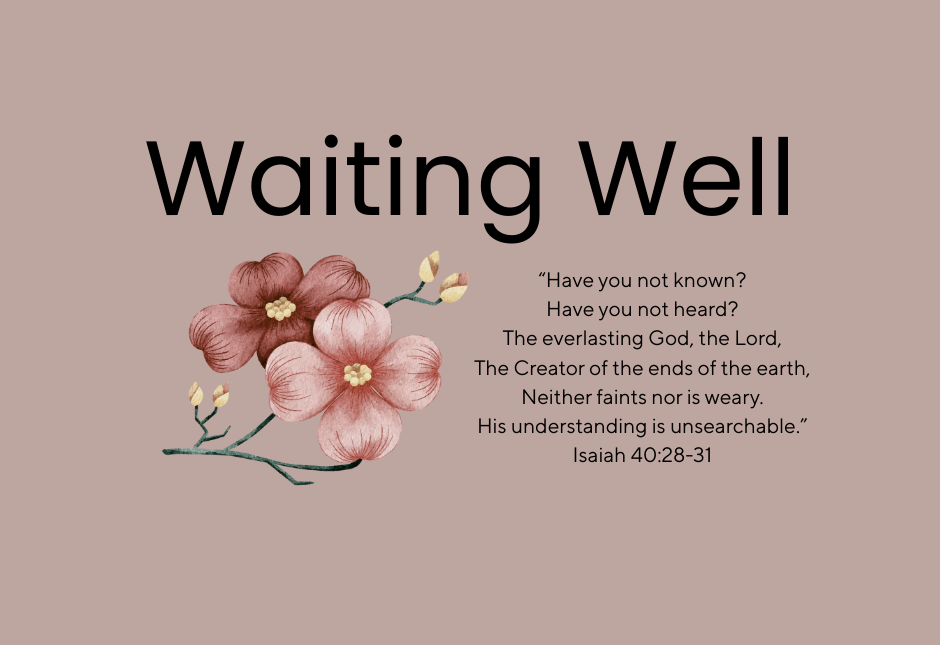“Waiting Well”
In our fast-paced world, we expect immediate results. We want instant answers to our prayers. But what happens when God’s timeline doesn’t match our own? What do we do when God seems to be taking too long?
There’s a profound truth we must understand: God’s time is always perfect, but it doesn’t always feel good. It’s natural to become impatient when we’ve been trusting and waiting, watching others receive their blessings while wondering, “Why not me, Lord?”
Consider Abraham’s story. At 75, God promised to make him a great nation with countless descendants. Yet Abraham and Sarah had no children. After waiting 11 years, Sarah convinced Abraham to take matters into his own hands by having a child with her servant Hagar. But Ishmael wasn’t God’s promised child.
It wasn’t until Abraham was 100 years old—25 years after God’s initial promise—that Sarah gave birth to Isaac, the child of promise. Through Isaac’s lineage would eventually come Jesus. God’s plan required patience because His purposes were greater than Abraham could imagine.
When we grow impatient with God’s timing, we manufacture our own solutions. The Israelites did this while waiting for Moses on Mount Sinai. After being miraculously delivered from centuries of Egyptian slavery, they became impatient when Moses was gone for just forty days. In their eagerness, they fashioned a golden calf to worship rather than waiting for divine instruction.
This pattern repeats in our lives. We pray, grow weary of waiting, and then try to make things happen ourselves. We settle for counterfeits, begin to doubt, or create our own “golden calf alternatives” to worship.
Isaiah 40:28-31 reminds us: “Have you not known? Have you not heard? The everlasting God, the Lord, the Creator of the ends of the earth, neither faints nor is weary. His understanding is unsearchable… But those who wait on the Lord shall renew their strength; they shall mount up with wings like eagles, they shall run and not be weary, they shall walk and not faint.”
So how do we wait well? Waiting isn’t passive resignation but an active posture of faith. Like David did in Psalm 103, speak to your soul. Remind yourself of God’s faithfulness and benefits when doubt creeps in. Worship while waiting, as Paul and Silas did in prison before their miraculous release. Your praise in difficult seasons is powerful. Recognize that you’re getting closer to God’s promise each day, not further from it. The longer you wait, the nearer you are to fulfillment.
Stay productive in your waiting season. Continue serving God faithfully right where you are.
And guard against unbelief. The longer the wait, the more tempting it is to doubt. Fight this tendency by increasing your faith, not diminishing it.
Those who wait on God’s timing experience renewed strength unlike anything humanly possible. Like the runner who broke the four-minute mile barrier and grew stronger as the race progressed, those who wait on God find supernatural endurance. Remember this: God’s delays are not denials. If He promised it, it will come to pass—perhaps not in your timing or in the way you expected, but in His perfect way and time.







